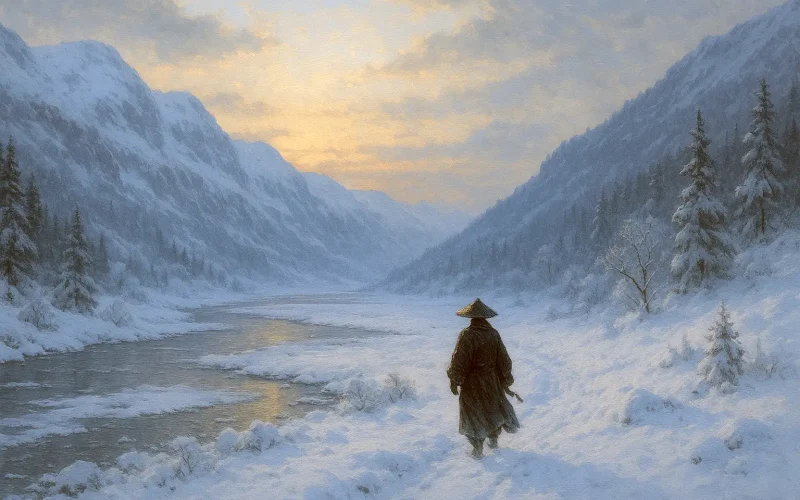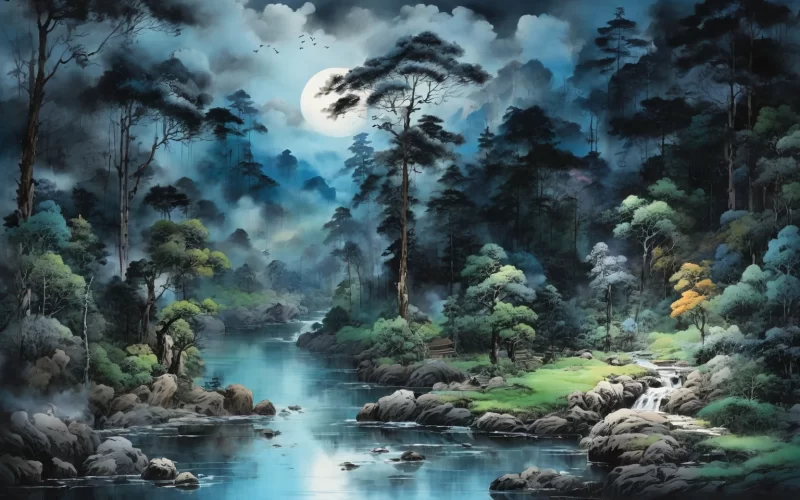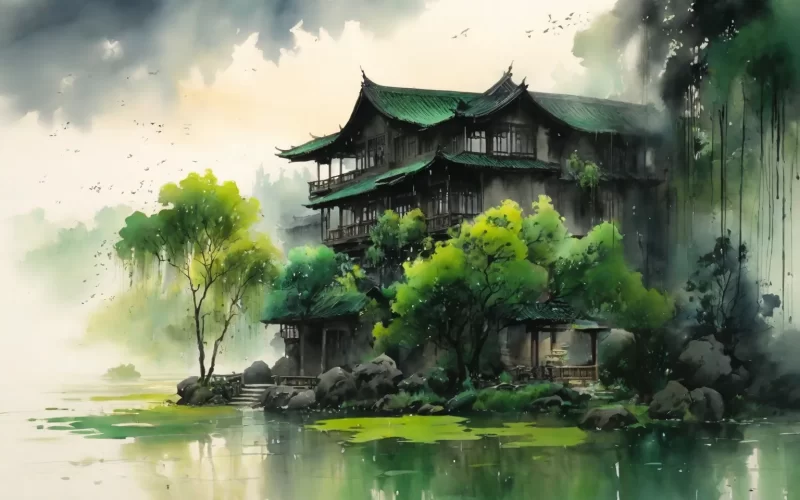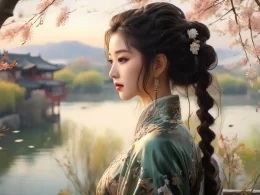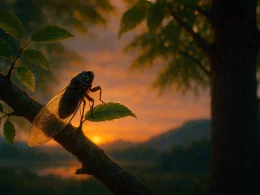Friend, I have watched you down the mountain
Till now in the dark I close my thatch door....
Grasses return again green in the spring,
But O my Prince of Friends, do you?
Original Poem
「山中送别」
王维
山中相送罢,日暮掩柴扉。
春草明年绿,王孙归不归。
Interpretation
This farewell poem by Tang Dynasty poet Wang Wei expresses the loneliness and longing felt after seeing off a friend in the mountains. Unlike typical farewell poems that depict emotional partings with tears, this work conveys post-departure solitude through a single poignant detail. With concise language and delicate emotion, it stands as one of Wang Wei's most classic farewell compositions.
First Couplet: "山中相送罢,日暮掩柴扉。"
Shān zhōng xiāng sòng bà, rì mù yǎn chái fēi.
After bidding farewell in the mountains, at dusk I close the wicker gate.
These lines capture a quiet moment: the poet slowly returns home alone as the sun sets, gently closing the wooden gate behind him. While seemingly plain, the act of "closing the wicker gate" brims with solitary melancholy. The emptiness following departure permeates this simple motion - Wang Wei focuses not on the farewell's intensity, but on its lingering emotional aftermath.
Second Couplet: "春草明年绿,王孙归不归。"
Chūn cǎo míng nián lǜ, wáng sūn guī bù guī.
When spring grass greens again next year, my noble friend, will you return?
Here the poet voices his yearning through nature's cycles. As vegetation renews, he wonders about his friend's possible return - not through direct questioning, but as an unspoken hope. This deceptively simple inquiry carries profound longing, transforming seasonal change into a metaphor for friendship's continuity.
Holistic Appreciation
The poem masterfully conveys post-farewell solitude through understated language and subtle emotion. Avoiding conventional parting scenes like embraces or waving, Wang Wei instead uses the "closed wicker gate" to embody quiet desolation. His sorrow manifests not as dramatic grief, but through the hopeful uncertainty of "spring grass greening" - at once a natural phenomenon and a question about friendship's resilience.
The genius lies in its restraint: no ornate phrases or emotional outbursts, just crystalline language carrying deep sentiment. The "spring grass" and rhetorical question about return serve dual purposes - marking time's passage while symbolizing friendship's value. As nature predictably renews, human reunions remain uncertain, making the poet's quiet hope all the more moving.
Artistic Features
Wang Wei reveals the inner world after farewell through a simple detail. Instead of conventional parting scenes, he conveys emotion through the act of "closing the wicker gate." Natural imagery like "spring grass" and "greening" not only enhance the poem's visual quality but also carry the poet's emotions. The entire poem uses plain language without ornate rhetoric, yet this very simplicity lays bare the poet's profound feelings, creating deep resonance.
Insights
This poem reminds us that farewell isn't always expressed through words or dramatic scenes. True emotions often hide in life's mundane details, revealed through simple actions or plain speech. By depicting "spring grass," the poet shows that time flows and friendships may reunite, but until then, we can only cherish memories through quiet waiting. Perhaps life's deepest affections are often conveyed not through declarations, but through silent anticipation and hope.
Poem translator
Kiang Kanghu
About the poet

Wang Wei (王维), 701 - 761 A.D., was a native of Yuncheng, Shanxi Province. Wang Wei was a poet of landscape and idylls. His poems of landscape and idylls, with far-reaching images and mysterious meanings, were widely loved by readers in later generations, but Wang Wei never really became a man of landscape and idylls.





